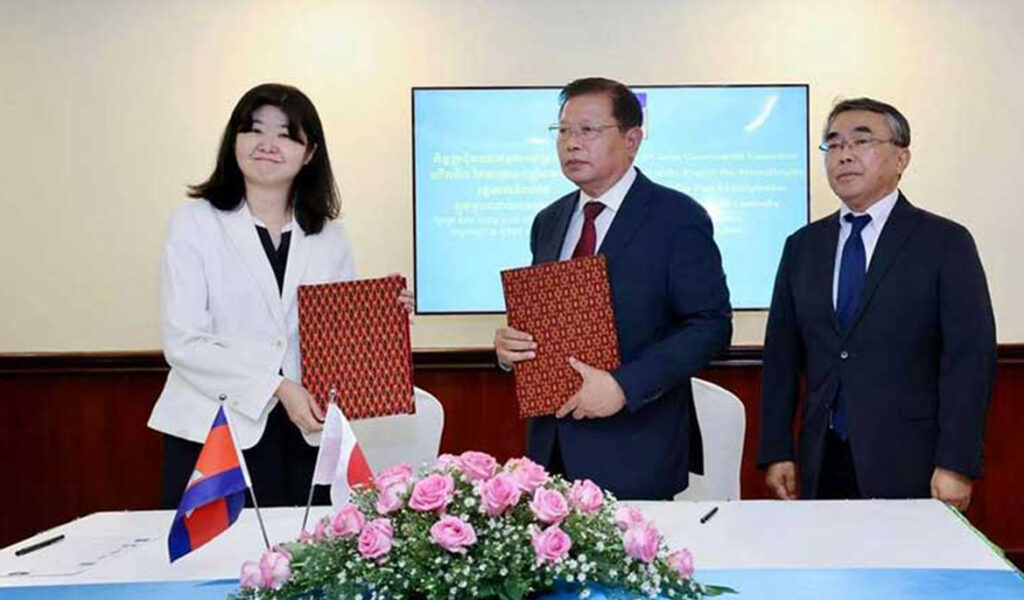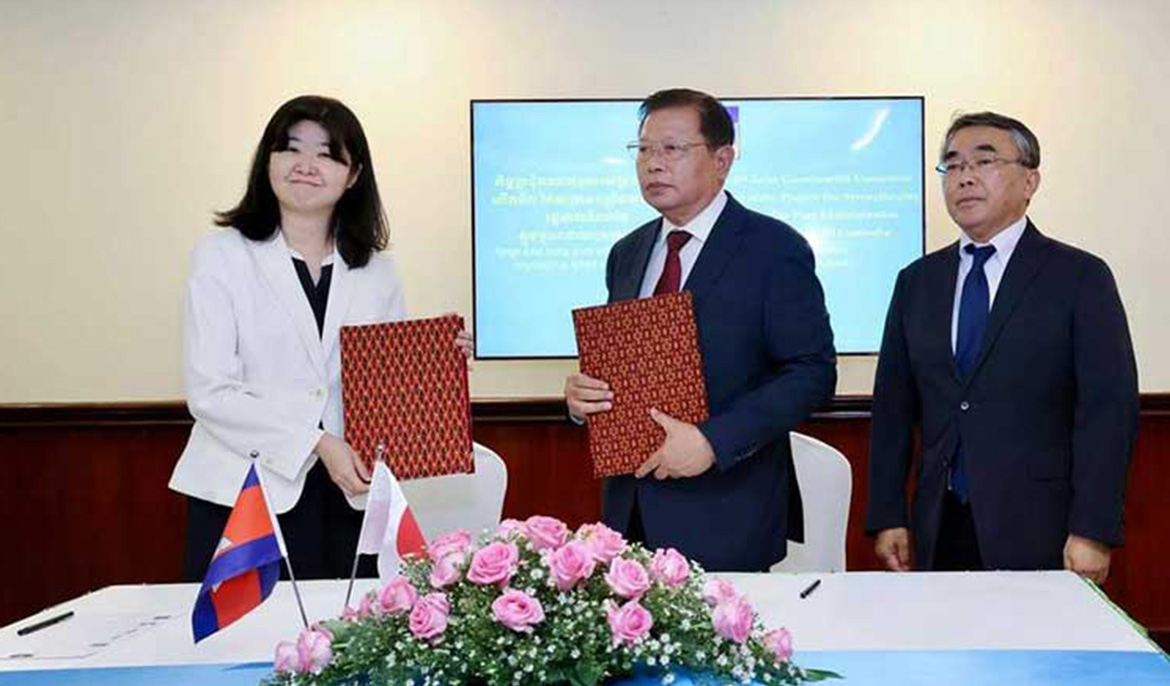Japan has reaffirmed its support for the capacity development efforts of ports in Cambodia.
The focus areas of port development were discussed at the third meeting of the Coordinating Committee for the Port Administration Capacity Building Project, chaired jointly by Ieng Veng Sun, Secretary of State of the Ministry of Public Works and Transport and Miura Yoshiko, Senior Representative of Japan International Cooperation Agency (JICA) Cambodia on Tuesday.
Technical officers of the ministry and a group of Japanese technical experts participated in the deliberations that focused on the capacity development of inland ports in the country.
“Discussions were held to prepare the plan for port area development in accordance with the Law on Inland Waterway Transport in the Kingdom of Cambodia,” said a statement.
According to Cambodia’s General Department of Logistics, there are 103 ports in Cambodia, among which 26 are seaports and 77 are river ports. The river ports are located along the Mekong, Tonle Sap, and Tonle Bassac Rivers and the inland waterway network has a total length of 1,750km in the country.
The inland waterway network is facilitating vessel traffic such as cross-border waterway transport between Cambodia and Vietnam.
Among the river ports, Phnom Penh Autonomous Port (PPAP) is the largest in Cambodia located at the junction of Bassac, Mekong and Tonle Sap rivers. Currently, it is the only river port in the country capable of receiving large vessels between 3,000 tonnes and 5,000 tonnes during the dry and wet seasons.
Meanwhile, according to a report filed recently with the Cambodia Securities Exchange (CSX), the revenue of PPAP for the first quarter of 2024 stood at $8.06 million, an increase of $536,587 or 6.78 percent compared to the first quarter of 2023.
The net profit for the first quarter this year was estimated at $1.51 million, a decrease of $428,367 or 22.24 percent, compared to the first quarter of 2023. The basic earnings per share for the quarter stood at 299.07 riels ($0.07).
“Despite the decrease in profit compared to the first quarter last year, PPAP is implementing strategic mechanisms such as enhancing the quality of services, expanding port capacity, developing infrastructures and launching the opening of sub-feeder terminals along the rivers,” said Hei Bavy, Chairman and CEO of PPAP in the filings before CSX.
Meanwhile, Japan is also supporting the development of Sihanoukville Autonomous Port (PAS) which is the largest port in the country and also the only deepwater seaport.
The new container terminal of PAS with 350 metres in length and 14.50 meters in depth is now under construction with JICA financing and once completed will allow larger container vessels with a capacity of 60,000 DWT to dock.
The expansion project is supported by JICA with a soft loan of $203 million. Once operational, the new terminal will help PAS to match the ocean freight cost of the neighbouring countries, or even better them, and this could boost the trade and economic development of Cambodia. The expanded port will also significantly contribute to attracting investors and improve the competitiveness of business in Cambodia.



